Final submissions conclude as Coroner sets time for findings in Kumanjayi Walker inquest
A time – but not a place – has been set for the coroner to deliver her findings in the Northern Territory’s longest inquest. Find out when it is.
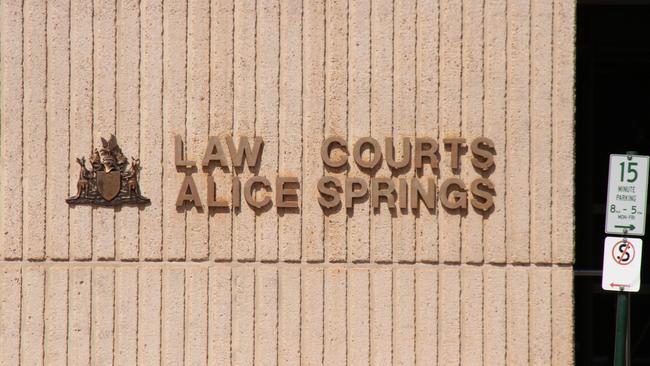
News
Don't miss out on the headlines from News. Followed categories will be added to My News.
November 28, 5pm: The Territory’s longest inquest is “likely” to end four months from now – but a location hasn’t been set for where it will happen.
Final submissions for the inquest into the death of Kumanjayi Walker concluded on Thursday in the Alice Springs Local Court.
The inquest is examining the death of 19-year-old Mr Walker in Yuendumu during an arrest in 2019. A Supreme Court trial in 2022 acquitted former constable Zachary Rolfe.
Coroner Elisabeth Armitage said she looked to list the matter early next year to finish it.
“It’s my intention to list this matter again, likely in late February 2025, to hand down my findings,” she said.
But she stopped short of naming a place where it will be done, even after the Parumpurru Committee, represented by Julian McMahon, invited her to deliver them in Yuendumu.
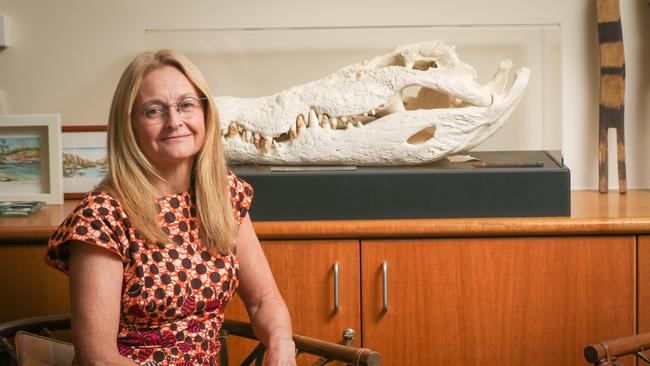
Before oral submissions concluding, Mr Rolfe’s lawyer Luke Officer phoned in to tell the hearing his client had “no obligation or duty to your court to prove anything”.
“Your honour should be careful not to single out Mr Rolfe,” he said.
On Wednesday, Mr Officer labelled allegations his client had “racist tendencies” an “extrapolation”.
Earlier in the day, Ian Freckelton SC, representing the Northern Territory Police, labelled Mr Rolfe as “racist”, “sexist”, and “misogynistic”.
In her closing submission, counsel assisting Peggy Dwyer said “your honour may find (Mr Rolfe) was influenced by his attitudes and his values and they included attitudes of sexism, contempt for female police, contempt for some superiors, contempt for Bush cops and racism.”
Earlier in the hearing during his submission, Mr Freckelton apologised for the police’s actions in the aftermath of the shooting of Mr Walker by Mr Rolfe.
While earlier in the day Mr Freckelton sought to distance the police from Mr Rolfe – who he labelled a “racist” a number of times – he did however call the former constable’s actions “commendable” when giving CPR to Mr Walker.
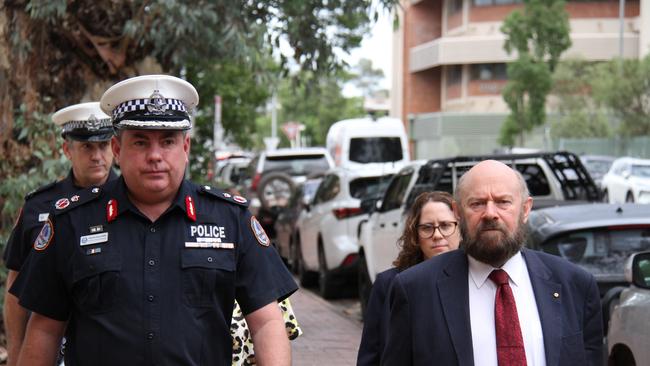
He said the police used “deceptive tactics” in the wake of Mr Walker’s shooting, and apologised for the actions of police on November 9, 2019.
He further apologised for Territory Response Group members standing guard with “long arms” at the house where Mr Walker was shot.
While they were “permitted” to have weapons, Mr Freckelton said, “they should’ve left them at the station, not taken them into the community”.
On the prospect of remote community cops being disarmed completely, Mr Freckelton said it was a “conversation we’re willing to have” to ensure police officers could stay armed in a way which the community also feels safe about.
The use of “long rifles” was left open by Mr Freckelton, who focused on pistols in his submission.
At Wednesday’s hearing, Mr McMahon put forward a submission to Coroner Elisabeth Armitage which sought remote cops be unarmed when in communities.
A number of reforms undertaken internally within the NT Police were outlined by Mr Freckelton, including increased cultural awareness training, anti racism strategies, new recruitment processes, increased training for senior management, and more.
The IRT – which Mr Rolfe was a part of when he shot Mr Walker – would never be “reconstituted”, Mr Freckelton said, and “use of force” incidents were now immediately referred to a senior sergeant to review.
The professional standards committee was also getting a “culture shift” to make it “less intimidating”, Mr Freckelton said.
“There is every reason, we submit, to be optimistic in that the police force has learned lessons and is making progress in providing better policing services that existed at the time of Kumanjayi’s tragic passing,” he said.
Ms Armitage adjourned the inquest to deliver her findings in late February.
Police claim it is ‘undeniable’ Rolfe is a ‘racist’
November 28, 1pm: A lawyer representing the Northern Territory Police has labelled a former constable a “racist” “sexist” and a “misogynist” while apologising for his actions during an arrest in Yuendumu five years ago.
After running for two years, final oral submissions for inquest into the death of Kumanjayi Walker were delivered in the Alice Springs local court on Thursday.
In the morning, Ian Freckelton, representing the Northern Territory Police, apologised for Zachary Rolfe’s “unauthorised” actions, and the police actions in the wake of the shooting.

“It was suggested yesterday that the Northern Territory Police Force … were uncomfortable with the R word – we’re not,” he said.
“We’re not uncomfortable with naming the word or naming the people, and that’s why we have straightforwardly characterised the sort of person that the former constable Rolfe is.”
In 2019, then-NT Police constable Mr Rolfe shot Mr Walker during an arrest.
A five day Supreme Court trial in 2022 acquitted Mr Rolfe.
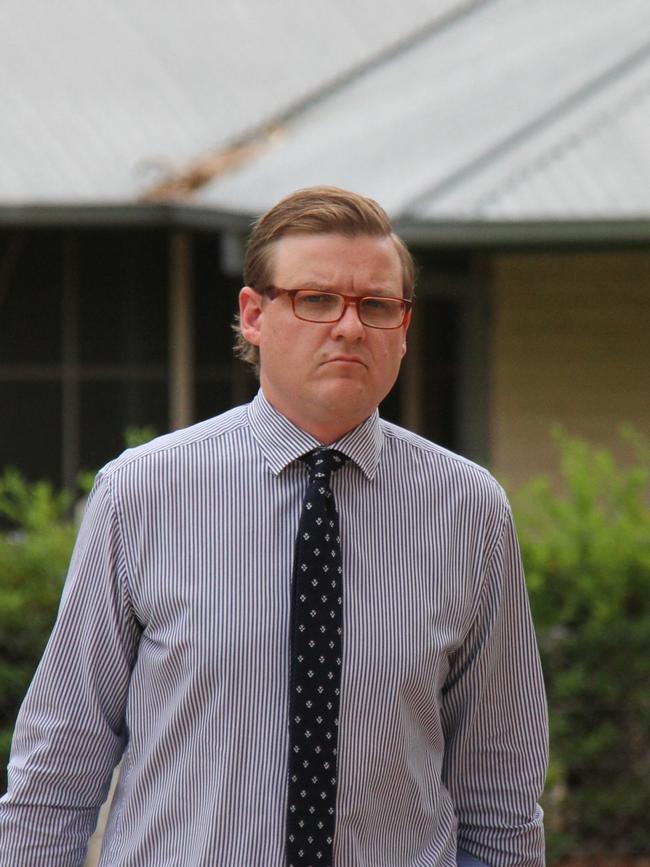
Mr Rolfe was not present for final submissions in Alice Springs.
During Wednesday’s submissions, Mr Rolfe’s lawyer Luke Officer sought to exclude his clients text messages as evidence in the inquest, arguing they had no direct correlation to the death of Mr Walker.
Mr Officer also called allegations Mr Rolfe had “racist tendencies” an “extrapolation”.
Mr Freckelton also quashed earlier requests by Kathleen McNally – the lawyer representing police sergeant Lee Bauwens – of bringing back the Incident Response Team.
At the time of the arrest, Mr Rolfe was a part of the IRT.
Ms McNally spoke on the benefits of the IRT, which responded to incidents in significantly quicker times compared to its Darwin counterparts – who could take up to 14 hours to get to the Red Centre.
Sitting in the gallery next to each other was NT police deputy commissioner Martin Dole and Leanne Liddle, the NT Police’s executive Director of the Community Resilience and Engagement Command.
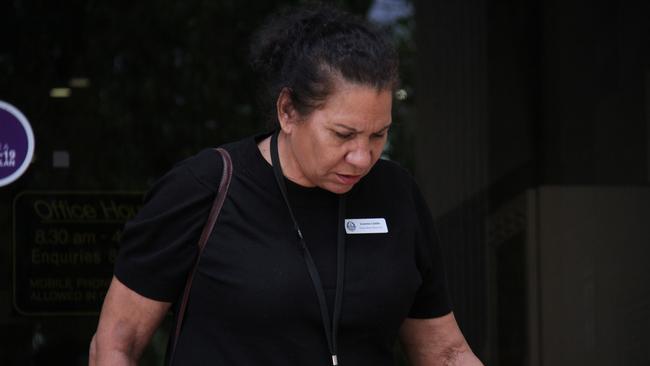
Earlier in the hearing, Tom Hutton, representing NT Health, defended the department’s decision to withdraw health staff from Yuendumu on November 9, 2019, calling it “appropriate and justified in the circumstances”.
He also rejected claims made by NAAJA and counsel assisting Peggy Dwyer in their submission that nurses present in Yuendumu could have saved the life of Mr Walker.
Mr Hutton said the evidence of this was drawn from Mr Rolfe’s criminal trial, and the man who gave evidence on this position, Professor Michael Reid, did not give evidence at the inquest on this point.
Mr Hutton said the nurses left at 3pm – hours before Mr Walker was shot – after they were victims to a series of break-ins between November 6 and 8, 2019.
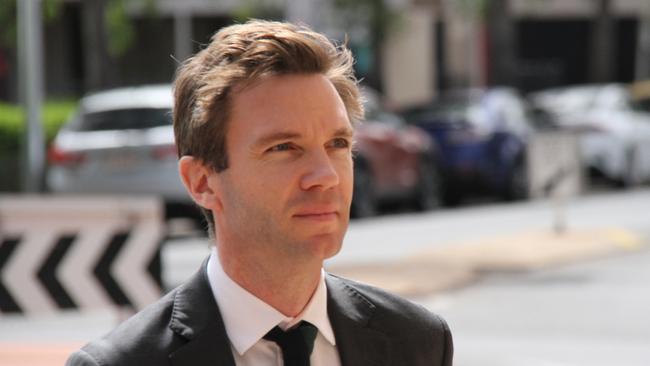
Detailing the break-ins, Mr Hutton said one nurse was inside a home as intruders attempted to “to peel back her corrugated iron roof to gain access”.
“The number of attempted unlawful entries of nursing accommodation on the night of 8th November was equal to that recorded across the entire southern region on the 6th of November,” he said.
The inquest into Mr Walker’s death began in 2022.
There have been 70 hearings, with the scope shifting from the death of Mr Walker to investigating allegations of systemic racism within a variety of government departments – most notably the police.
Evidence of racist awards was uncovered – by Mr Rolfe when he took the stand in May this year – with the Territory police commissioner admitting he knew about them months earlier, but did nothing about it.
Ahead of the final oral submissions for the inquest, 1190 pages of written submissions were tendered, the court heard.
The inquest continues.
Explosive accusations over gun claims in Kumanjayi Walker inquest
Updated: Wednesday, November 27: A lawyer for Zachary Rolfe has shut down allegations his client’s claims Kumanjayi Walker grabbed his gun were an “invention’ – instead questioning why no one sought to view the body cam footage in the inquest.
Final oral submissions into the inquest of Kumanjayi Walker at the Alice Springs Local Court began on Wednesday, where the court heard 1990 pages of submissions had been tendered.
Coroner Elisabeth Armitage was presiding over proceedings, and giving their submission first was counsel assisting Peggy Dwyer SC.
Dr Dwyer took aim at Mr Rolfe and his actions on and in the lead up to November 9, 2019, disputing key parts of the former constable’s story.
She labelled the claim Mr Walker reached for Mr Rolfe’s gun on the night of his arrest “an invention” he added to his story two years afterwards – mostly notably during his trial, and in interviews with the media.
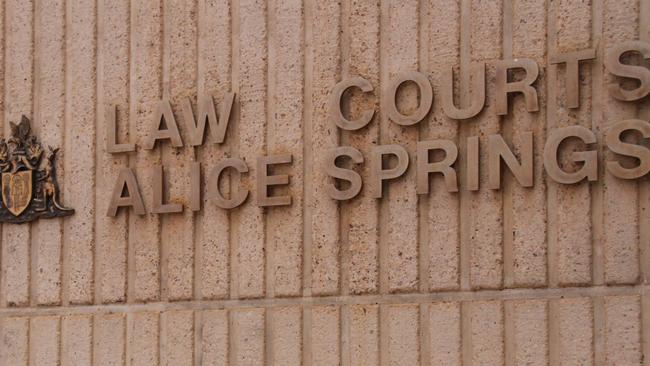
“That’s a significant finding, your honour, and I make it carefully and after careful consideration and we have set out the evidence in full,” she said.
“Your honour would find the following, if that were true, that if Kumanjayi had in fact attempted to obtain Mr Rolfe’s firearm, that would have been understood by Mr Rolfe to be one of the most significant pieces of evidence in respect to his claim of self defence.
“He conceded at this inquest that the significance of Kumanjayi putting his hand on his Glock is that he could have then withdrawn the weapon, and to lose control of his service weapon was one of the most serious things that could happen to a police officer.”
Julian McMahon SC, representing the Parumpurru Committee, also labelled Mr Rolfe’s claim Mr Walker grabbed the gun “false”.
Mr Rolfe was not present for the final submissions, but was represented by Luke Officer.
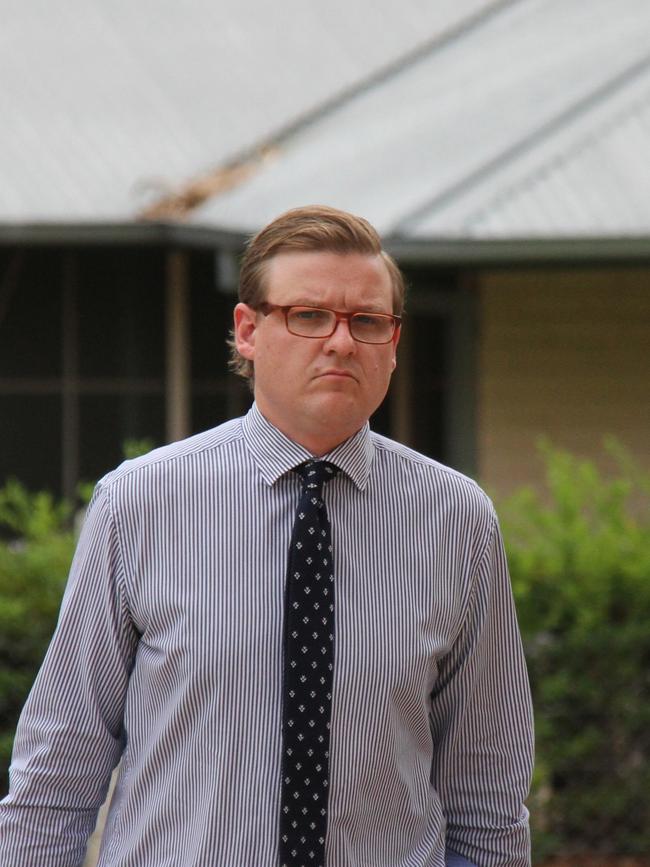
Mr Officer’s submission was “just because something doesn’t feature on the body worn video does not mean it did not happen”.
“It would be improper reasoning to suggest just because you can’t see it, it did not happen,” he said.
“And, your Honour, if it was so significant as parties put to Mr Rolfe, that it was a fabrication or a lie, why didn’t they take them to the body of the video?
“As you know from our submissions, no one sought to claim this interest and asked Mr Rolfe to tell them.”
Mr Walker was shot three times by Mr Rolfe in Yuendumu on November 9, 2019, with the second shot being fatal, the inquest heard.
A five day supreme court trial acquitted Mr Rolfe of all charges in 2022.
Dr Dwyer also accused Mr Rolfe of lying about his knowledge of the “factual content of the ops order” when giving evidence at the inquest in May.
However, Mr Officer countered this, and said the first time Mr Rolfe saw the operation order was when giving evidence at this inquest.
Mr Officer then warned against Ms Armitage following a “bouncing ball” series of submissions to a conclusion which could deliver findings in contravention of Mr Rolfe’s jury verdict.
“You can make claims of fact about what Zach Rolfe did, what he saw, what he heard,” Mr Officer said.
“But you can’t then take the next step of applying a standard legal standard today, saying it was excessive force or it was unjustified or it was unlawful.
“That’s what everyone in this room, with the exception of a few, are asking you to do.
“With the greatest respect your honour (that) will lead you to error.”
At previous hearings, Mr Rolfe gave evidence of systemic racism and racist awards within the Northern Territory police force.
Dr Dwyer said the inquest would hear from Northern Territory Police about a number of changes or reforms or improvements that had been made.

NT Police deputy commissioner Martin Dole was at the hearing, sitting in the gallery.
Also giving submissions on Wednesday was NAAJA, Gerard Mullins for the Brown Family, and Andrew Boe for the Walker-lane family, whose submissions centred around racism in the NT Police Force, and changes being made to community policing.
Representing the police at the bar was Ian Freckelton KC, who will give submissions Thursday, when oral submissions resume.
The inquest began in September 2022, and Ms Armitage is expected to deliver her findings at a later date.
Initial: Wednesday, November 27: The Territory’s longest running inquest is back underway, bringing lawyers, media, and grieving family members back to the Red Centre capital five years after a 19-year-old man was shot in Yuendumu.
Presided over by Coroner Elisabeth Armitage, the inquest into the 2019 shooting death of Kumanjayi Walker by former NT Police constable Zachary Rolfe is resuming today in the Alice Springs Local Court.
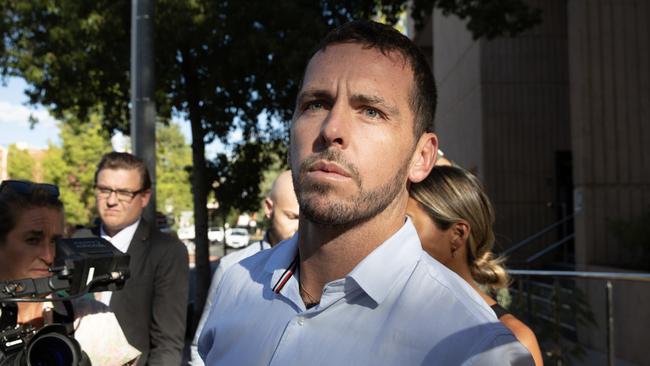
Mr Rolfe has previously been acquitted of all charges after a five-day trail in the Supreme Court.
The inquest, which began in 2022, has heard explosive revelations of racism in the Territory’s police force – delivered by Mr Rolfe, who fought tooth and nail to avoid giving evidence at the inquest.
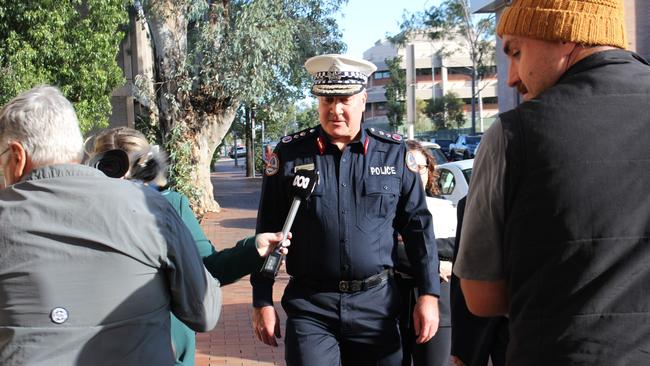
The inquest uncovered racist awards being dished out inside the Territory Response Group, which led to Police Commissioner Michael Murphy taking the stand.
He said to unintentionally misleading the public by earlier denying knowledge of the awards.
The next two days of the inquest will see lawyers for Mr Rolfe, Mr Walker’s family, NT Police and other interested families returning to court for oral submissions.
The oral submissions will conclude on Thursday.
Ms Armitage is expected to deliver her findings from the inquest in 2025.
More Coverage
Originally published as Final submissions conclude as Coroner sets time for findings in Kumanjayi Walker inquest




